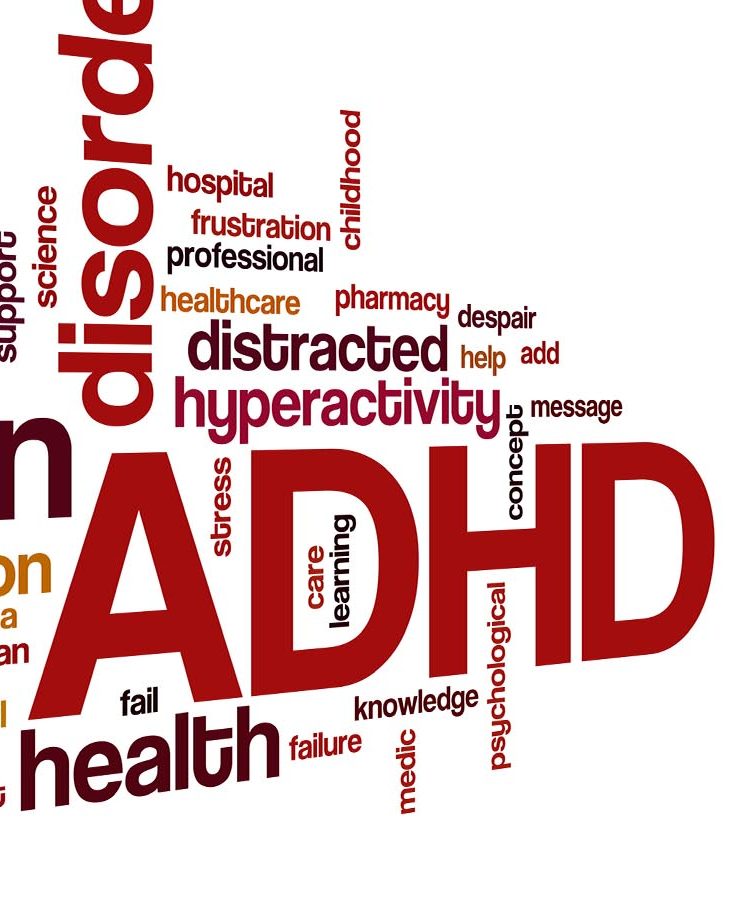Attention Deficit
Hyperactivity Disorder (ADHD):
Information and Resources
Attention deficit hyperactivity disorder (ADHD) is a common neurobehavioral disorder in America. Approximately 3 to 5 percent of all children in the USA have been diagnosed with this disorder.
ADHD affects one’s ability to focus on a given task. It also affects one’s ability to practice age-appropriate self control. This lack of self control can be entirely cognitive. It can also be a combination of cognitive and behavioral.

The symptoms of ADHD include the following:
- Failing to listen to, or follow, instructions
- Inability to manage oneself and tasks like school work
- Restless hands and feet (fidgeting)
- Talking a lot
- Leaving chores, homework and other projects incomplete
- Difficulty paying attention to and reacting to details
ADHD has a few broad categories:
- Predominantly inattentive
- Predominantly hyperactive-impulsive
- A combination of the previous two categories
This disorder is often diagnosed in childhood. It is also possible for the condition to persist into adulthood.
The symptoms of ADHD include the following:
- Failing to listen to, or follow, instructions
- Inability to manage oneself and tasks like school work
- Restless hands and feet (fidgeting)
- Talking a lot
- Leaving chores, homework and other projects incomplete
- Difficulty paying attention to and reacting to details
ADHD has a few broad categories:
- Predominantly inattentive
- Predominantly hyperactive-impulsive
- A combination of the previous two categories
This disorder is often diagnosed in childhood. It is also possible for the condition to persist into adulthood.

Treating ADHD
ADHD is generally treated with stimulant-based medications. These medications reduce impulsive and hyperactive behaviors. They also help improve attention spans. These may include medications such as Ritalin (or methylphenidate), or Dexedrine (or dextroamphetamine).
But most experts agree that ADHD treatment should consider various dimensions. Treatment should not focus on only medications. This means that treatment should also include:
- Parent education (such as discipline and setting boundaries)
- Tutoring the child in appropriate behaviors
- Behavioral therapy
- Structured classroom management


![]()
ADHD Prognosis
There is no cure for ADHD. Children who are diagnosed with this condition rarely outgrow it. But with treatment, they tend to find adaptive methods. As a result, they can successfully live with ADHD into adulthood.
![]()
ADHD Prognosis
There is no cure for ADHD. Children who are diagnosed with this condition rarely outgrow it. But with treatment, they tend to find adaptive methods. As a result, they can successfully live with ADHD into adulthood.

Accessing Healthcare
for ADHD
Do you have a child who exhibits one or a few symptoms of ADHD? If so, then please feel free to contact us for an initial consultation. Our specialists will provide the appropriate diagnosis. They will also speak with you about a treatment plan that best serves your child’s health and wellbeing.


ADHD Resources
Research Institutions
The National Institutes of Health (NIH) support several research programs on developmental disorders. This includes ADHD. The following programs study the causes of ADHD. They also seek to improve its diagnosis and treatment:
- National Institute of Neurological Disorders and Stroke (NINDS)
- The National Institute of Mental Health (NIMH)
- National Institute of Child Health and Human Development (NICHD)
Organizations
Children and Adults With Attention Deficit Hyperactivity Disorder (CHADD)
A non-profit organization that serves to improve the quality of life of persons with ADHD. It uses the tools of advocacy, research, education, support and collaborative leadership.
Attention Deficit Disorder Association (ADDA)
This is another non-profit that focuses on the needs of young adults and adults with ADD/ADHD. It also provides support for the children and families of such persons.
Learning Disabilities Association of America
This organization identifies the sources of learning disabilities. They also promotes the prevention of the same where possible. This organization also improves lives by supporting early identification and intervention. They encourage research. They also encourage the protection of the legal rights of people with disabilities.
National Center for Learning Disabilities
This organization provides information to people with learning disabilities, as well as their support teams. This can include ADHD. They also promote research and programs to encourage learning. They advocate for policies to protect the educational rights of people with learning disabilities.
ADHD Resources
Research Institutions
The National Institutes of Health (NIH) support several research programs on developmental disorders. This includes ADHD. The following programs study the causes of ADHD. They also seek to improve its diagnosis and treatment:
- National Institute of Neurological Disorders and Stroke (NINDS)
- The National Institute of Mental Health (NIMH)
- National Institute of Child Health and Human Development (NICHD)
Organizations
Children and Adults With Attention Deficit Hyperactivity Disorder (CHADD)
A non-profit organization that serves to improve the quality of life of persons with ADHD. It uses the tools of advocacy, research, education, support and collaborative leadership.
Attention Deficit Disorder Association (ADDA)
This is another non-profit that focuses on the needs of young adults and adults with ADD/ADHD. It also provides support for the children and families of such persons.
Learning Disabilities Association of America
This organization identifies the sources of learning disabilities. They also promotes the prevention of the same where possible. This organization also improves lives by supporting early identification and intervention. They encourage research. They also encourage the protection of the legal rights of people with disabilities.
National Center for Learning Disabilities
This organization provides information to people with learning disabilities, as well as their support teams. This can include ADHD. They also promote research and programs to encourage learning. They advocate for policies to protect the educational rights of people with learning disabilities.

Call Us to Make an Appointment
Phone: 713-589-7020
Fax: 713-999-9095
3301 Plainview St, Suite 8
Pasadena, Texas 77504

